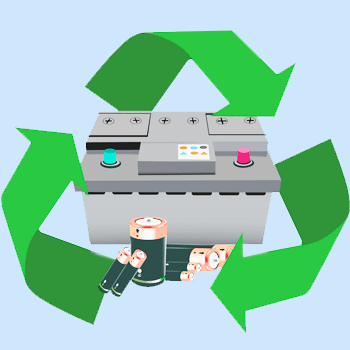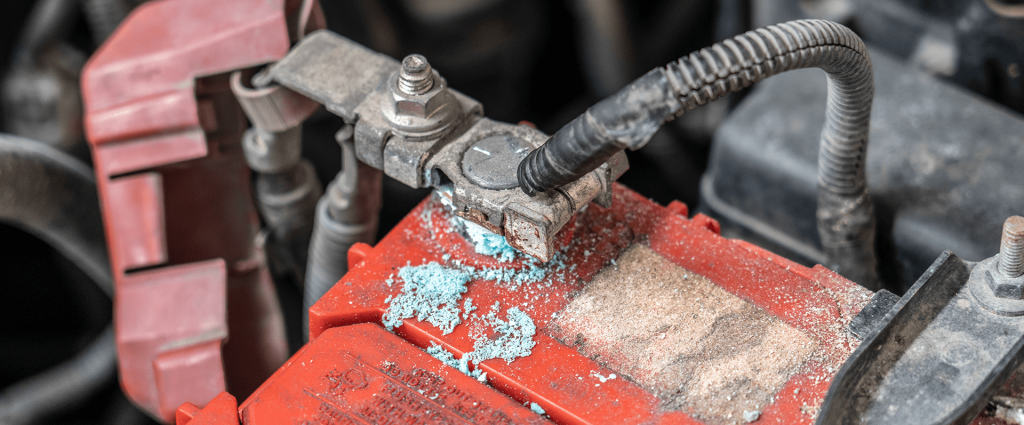Buying out batteries
Nord Holding is engaged in buying out old batteries, incl. lead-acid batteries – automotive, industrial or from uninterruptible power supply (UPS) devices.
This type of waste falls into the category of unusable batteries and accumulators – UBA, which we manage in accordance with the Ordinance on Batteries and Accumulators and UBA.
Most often they come from various types of vehicles, industrial machines and uninterruptible power supply (UPS) devices that are no longer able to perform their functions.
Lead-acid batteries contain lead and acid, which are dangerous for the environment and require special treatment when recycling!
As a result of the processing of batteries, depending on their type, valuable raw materials, waste of ferrous and non-ferrous metals such as iron, lead, cadmium, copper, aluminum, nickel and others are obtained.
If you have old car batteries, trust Nord Holding – we buy batteries from individuals and legal entities at the best prices.
What types of batteries do we buy?
Nord Holding buys the two most common types of batteries used in vehicles today, including:

Lead-acid batteries from cars
The more common type of battery devices with which all modern cars are equipped. They function as batteries that power the starter motor and/or lights. Lead-acid batteries are made from materials such as lead, plastic and electrolyte. They can be recycled to a high degree – up to about 90%;

Lithium-ion batteries (accumulators) for electric vehicles
Also known as traction batteries, serve to power the electric vehicles entering the world market today. They are made from ferrous and non-ferrous metals, including iron, copper, aluminum, plastic, binders, electrolyte, graphite, lithium, nickel, cobalt and manganese.
Conditions under which we buy car UBA
We buy batteries of different sizes and conditions, such as batteries with a plastic case – without violation of the integrity of the case, with caps, and the battery grids: they shall be free from paste and plastic residue.
Due to the cost of recycling exceeding the value of the extracted materials, lithium-ion car batteries can only be accepted by prior agreement with the supplier to pay a certain fee.
A specific requirement for the delivery of batteries and accumulators containing liquid (such as automotive batteries) is that they be delivered with a undamaged case, caps available and liquid preserved.
Nord Holding Aluminum Specification
| DESIGNATION | DESCRIPTION |
|---|---|
| Batteries | Origin: Cars, trucks, forklifts |
| Accumulators with a plastic case: Lead-acid batteries with electrolyte, without violation of the integrity of the case, with caps. | |
| Batteries for UPS devices: Lead-acid batteries for UPS devices with a plastic case, with case integrity violations. | |
| Battery grids: Free from paste and plastic residue. |
Where do we have sites for buying out batteries?
Nord Holding, with its leading positions in the buying of old batteries from vehicles and a number of other wastes, is also distinguished by its network of its own and partner sites.
We provide you with convenience and easy access to our own and/or partner sites in the country where batteries are buying out locally.
Why should you trust Nord Holding?
Nord Holding is a leading company for trading secondary raw materials in Bulgaria – the company has been operating since 1995, continuously expanding its range of services.
The company has all the permits to carry out activities with collection and storage of old batteries, as well as their forwarding for subsequent recycling.
If you are looking for a trusted partner to take care of your old batteries in the most environmentally friendly way, trust Nord Holding!
Frequently Asked Questions
Buying process
Automobile batteries are accepted by both individuals and legal entities. Upon delivery to our site, the documents required by the legislation are drawn up.
Important information:
The most environmentally friendly way to dispose of waste batteries and accumulators is to hand them over
to legal entities that are licensed to deal with them and will take care that they are handed over
for recycling to facilities that meet the requirements of current legislation.
Activities following acceptance of automobile batteries
After receiving automobile batteries at our site, trained personnel stores the batteries separated by type in designated containers – waterproof plastic boxes that are stored indoors or under a shed.
Recycling process
Automobile batteries are handed over to recycling facilities in Bulgaria and countries of the European Union,
specialized in recycling of certain types of batteries.
Before submitting batteries for recycling, we require facilities
to ensure that they meet the requirements of European legislation for minimum
recycling percentage thresholds per battery types.
Recycling of lead-acid batteries and accumulators
Recycling is carried out in the following way:
Recycling of lithium-ion batteries and accumulators
Recycling is carried out in the following way:
Benefits

Recycling unusable automobile batteries
gives us valuable raw materials such as:
These materials are fed back into industry, offsetting the
limited natural resources mined for their production.

